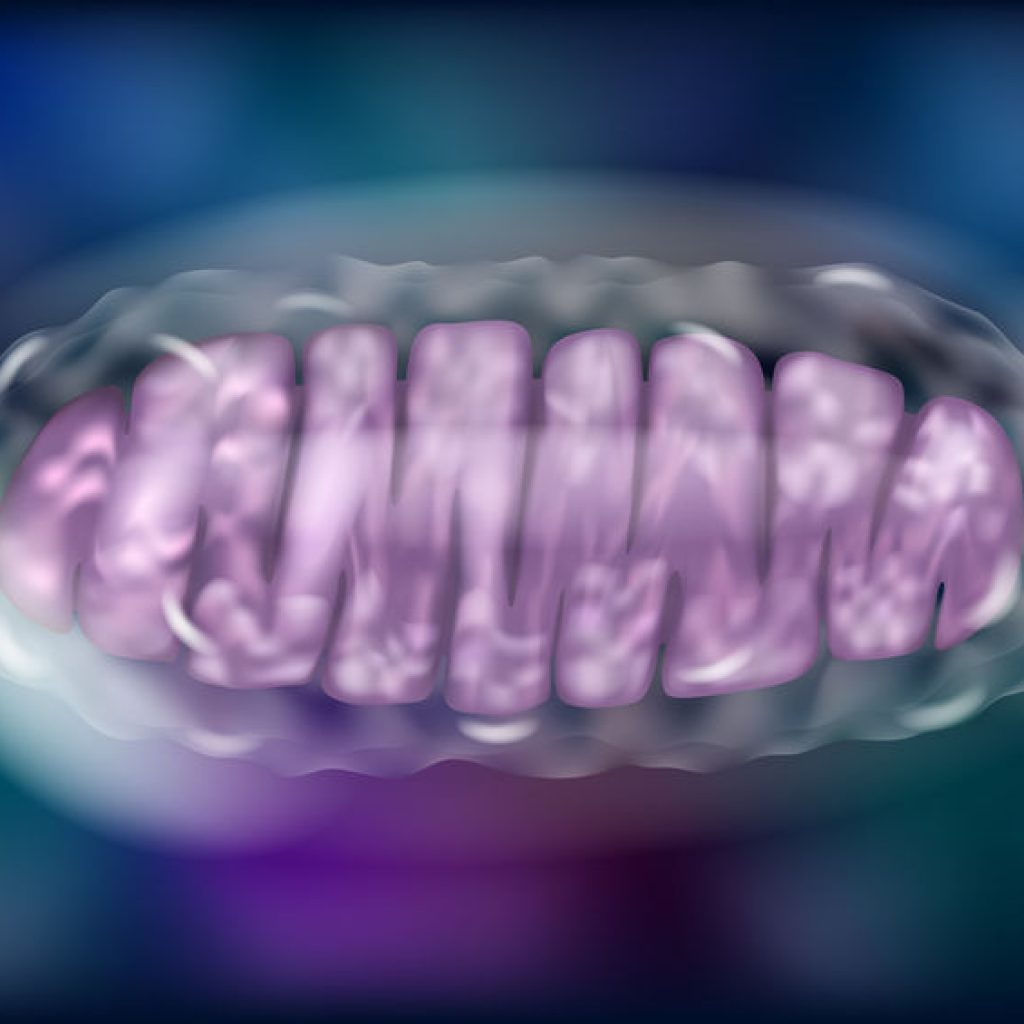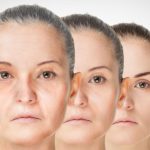CATHERINE CLINTON, ND
Autoimmune conditions have risen dramatically over the last 25 years. In the United States, there are an estimated 23 million people with over 100 different kinds of autoimmune diseases.1,2 Autoimmune disorders have a multitude of causes, affecting a host of different organs in the body. As naturopathic physicians, we offer a unique set of skills and modalities to treat autoimmune conditions, and we address areas of health that pharmaceuticals cannot. An important consideration, when assessing and treating a patient’s autoimmune disease naturopathically, is the patient’s mitochondrial function.
Autoimmune diseases are characterized by immune system hyperresponsiveness to the body’s own tissues. While autoimmune diseases differ in terms of the predominant immune responses within the Th1, Th2, and Th17 branches of the immune system, they all rely on T-regulatory (Treg) cells to manage this inflammatory response.3 Treg cells serve as moderators of the immune system, squelching inflammatory responses throughout the body. They are formed in the gut and are potent immune system modulators.
Our immune systems are made up of the innate and adaptive branches. While Treg cells were originally thought to act on just the adaptive immune system, recent research demonstrates that Treg cells have a role in the innate immune system as well.4,5
Tregs contain widespread inflammation by redirecting antigen-presenting cell maturation and function, destroying target cells, altering metabolic pathways, and producing anti-inflammatory cytokines.6 Ample research has shown an association between dysfunctional Treg cell function and autoimmune responses.7 Treg cells are paramount in the induction of self-tolerance, the very process that becomes dysfunctional in autoimmunity. As we’ll soon see, our mitochondria play a vital role in the function of Treg cells and the progression of autoimmune diseases.
Role of Mitochondria in Autoimmunity
Mitochondria are traditionally thought of as the power houses of the cell. Believed to be a result of bacteria merging with proto-eukaryotic cells sometime within our evolution as humans, mitochondria have a profound effect on our health.8 They are small organelles within the cell and are responsible for cellular respiration and energy production. Recent research also highlights the mitochondria’s vital role in the immune system.9 Once immune cells are activated, mitochondria become essential for their function in the body.
Our innate immune cells distinguish microbe-specific structures or microbial molecules like pathogen-associated molecular patterns (PAMPs), such as lipopolysaccharide (LPS) or flagellin (the main protein constituent of bacterial flagella).10 They also recognize cell-derived molecules from our own damaged cells, such as damage-associated molecular patterns (DAMPS).9 One of our DAMPs is mitochondrial DNA that is released in response to damage. Our innate immune cells have specific receptors called pattern recognition receptors (PRRs) – toll-like receptors being 1 example – to detect PAMPs and DAMPs.9
During an infection or trauma, mitochondria release DAMPs that resemble structures of bacteria-derived PAMPs.9 Mitochondrial DNA with hypomethylated CpG motifs and cardiolipin are 2 examples of mitochondrial DAMPs. These DAMPs released from the mitochondrion signal the immune system to ramp up the inflammatory response to infection.9 One way they do this is by increasing the reaction of antigen-specific T-cells during infection.11 Mitochondrial metabolites are essential for the activation of this adaptive immune T-cell response during infection; however, when those mitochondrial DAMPs persist, or emerge from other triggers such as toxins and stress, it does not bode well for the progression or severity of autoimmune disease.
Recent research has revealed consistent metabolic alterations of Treg cells during autoimmunity. Increased mitochondrial oxidative stress and a robust DNA damage response (DDR) associated with cell death occur in Tregs in individuals with autoimmunity.12 The DDR is a complex system that recognizes and repairs DNA damage, while responding to immune threats, by acting together to increase cellular defense. Autoimmunity modifies this DDR system with an atypical immune response to self-antigens, increased production of autoantibodies, and oxidative stress with multiple-tissue injury.12
Recent research has demonstrated an accumulation of endogenous DNA damage in peripheral blood mononuclear cells from autoimmune patients with systemic lupus erythematosus, rheumatoid arthritis, and systemic sclerosis.12 This accumulation of DNA damage was related to amplified DNA damage (partly due to induced oxidative stress), and epigenetically regulated abnormalities in DNA repair mechanisms.12 This aligns with similar studies that found extracellular and/or oxidized mitochondrial DNA in autoimmune patients.13-16
In an experimental mouse model of autoimmune encephalitis, researchers found Treg cell dysfunction with a prominent mitochondrial reactive oxygen species (mtROS) signature.13 Treg mtROS weakens lysosomal function, induces a DDR, and promotes cell death in Treg cells. DDR was reversed and Treg cell death was prevented by scavenging of mtROS in the Treg cells; Th1 and Th12 autoimmune responses were also attenuated.13
Targeted Treatments
This recent research has profound implications for the naturopathic treatment of autoimmune conditions. If autoimmune reactions are dictated by the efficacy of Treg cells, which is critically impacted by mitochondrial health, then addressing the inflammatory status of the body to mitigate mitochondrial damage and DAMPs should favorably impact Treg cell function and prove to be an important piece in the treatment of autoimmunity.
Extensive research has been done into the effect of antioxidants and natural supplements to help mitigate mitochondrial damage and improve mitochondrial function.17 Alpha-lipoic acid is a powerful antioxidant, redox transcription regulator, and anti-inflammatory agent.18 It is an essential cofactor in mitochondrial α-keto acid dehydrogenases, thus is a key player in oxidative-decarboxylation reactions in the mitochondria. Alpha-lipoic acid has been shown to be helpful in the treatment of mitochondrial dysfunction.19
L-carnitine is critical for the transport of fatty acids into the matrix of the mitochondria, thus supports mitochondrial oxidative phosphorylation.18 NADH acts as a cellular redox cofactor in more than 200 cellular redox reactions and also serves as a substrate for multiple enzymes. NADH precursors as well as oral, stabilized NADH have been used therapeutically in chronic fatigue and various neurological disorders.18 Coenzyme Q10 (CoQ10) is a critical cofactor in the mitochondrial electron transport chain (ETC). While CoQ10 is a potent antioxidant in its reduced form and can influencing gene expression in metabolism, cell signaling, and transport, its primary role lies in the transfer of electrons in the ETC.18 Research has found all 3 of these compounds to be helpful in the treatment of mitochondrial function.17-22
The use of mitochondrial membrane phospholipids (eg, phosphatidylcholine) to remove damaged (mainly oxidized) membrane lipids in mitochondria and other cellular organelles has proved to be very effective at increasing mitochondrial function and reducing fatigue.23 Antioxidants such as ascorbic acid, vitamin E, and lipoic acid, as well riboflavin, thiamin, niacin, and vitamin K have also been shown to be helpful in the treatment of mitochondrial function.17–19,21,22 Antioxidant supplements can reduce levels of ROS and reactive nitrogen species and prevent some oxidative damage of mitochondrial membrane phospholipids17-19,21-23; however, antioxidants alone cannot repair the damage already done to cells, making combination supplements a promising option.23
Conclusion
As the rates of autoimmunity continue to rise, it is important for us as naturopathic physicians to address the root causes of autoimmune disease. The research clearly indicates the need for more examination into taking a multipronged approach to autoimmunity that encompasses mitochondrial support as well as overall inflammatory support.
References:
- National Institutes of Health. The Autoimmune Diseases Coordinating Committee. Progress in Autoimmune Disease Research. March 2005. Available at: https://www.niaid.nih.gov/sites/default/files/adccfinal.pdf. Accessed February 2, 2021.
- American Autoimmune Related Diseases Association. There are more than 100 Autoimmune Diseases. 2018. AARDA Web site. https://www.aarda.org/diseaselist/. Accessed February 2, 2021.
- Stummvoll GH, DiPaolo RJ, Huter EN, et al. Th1, Th2, and Th17 effector T cell-induced autoimmune gastritis differs in pathological pattern and in susceptibility to suppression by regulatory T cells. J Immunol. 2008;181(3):1908-1916.
- Okeke EB, Uzonna JE. The Pivotal Role of Regulatory T Cells in the Regulation of Innate Immune Cells. Front Immunol. 2019;10:680.
- Rongvaux A. Innate immunity and tolerance toward mitochondria. Mitochondrion. 2018;41:14-20.
- Grant CR, Liberal R, Mieli-Vergani G, et al. Regulatory T-cells in autoimmune diseases: challenges, controversies and–yet–unanswered questions. Autoimmun Rev. 2015;14(2):105-116.
- Zhang XM, Liu CY, Shao ZH. Advances in the role of helper T cells in autoimmune diseases. Chin Med J (Engl). 2020;133(8):968-974.
- Gray MW, Burger G, Lang BF. Mitochondrial evolution. Science. 1999;283(5407):1476-1481.
- Faas MM, de Vos P. Mitochondrial function in immune cells in health and disease. Biochim Biophys Acta Mol Basis Dis. 2020;1866(10):165845.
- Akira S, Uematsu S, Takeuchi O. Pathogen recognition and innate immunity. Cell. 2006;124(4):783-801.
- Sena LA, Li S, Jairaman A, et al. Mitochondria are required for antigen-specific T cell activation through reactive oxygen species signaling. Immunity. 2013;38(2):225-236.
- Souliotis VL, Vlachogiannis NI, Pappa M, et al. DNA Damage Response and Oxidative Stress in Systemic Autoimmunity. Int J Mol Sci. 2019;21(1):55.
- Alissafi T, Kalafati L, Lazari M, et al. Mitochondrial Oxidative Damage Underlies Regulatory T Cell Defects in Autoimmunity. Cell Metab. 2020;32(4):591-604.e7.
- Hajizadeh S, DeGroot J, TeKoppele JM, et al. Extracellular mitochondrial DNA and oxidatively damaged DNA in synovial fluid of patients with rheumatoid arthritis. Arthritis Res Ther. 2003;5(5):R234-R240.
- Collins LV, Hajizadeh S, Holme E, et al. Endogenously oxidized mitochondrial DNA induces in vivo and in vitro inflammatory responses. J Leukoc Biol. 2004;75(6):995-1000.
- Caielli S, Athale S, Domic B, et al. Oxidized mitochondrial nucleoids released by neutrophils drive type I interferon production in human lupus. J Exp Med. 2016;213(5):697-713.
- Marriage B, Clandinin MT, Glerum DM. Nutritional cofactor treatment in mitochondrial disorders. J Am Diet Assoc. 2003;103(8):1029-1038.
- Nicolson GL. Mitochondrial Dysfunction and Chronic Disease: Treatment With Natural Supplements. Integr Med (Encinitas). 2014;13(4):35-43.
- Camp KM, Krotoski D, Parisi MA, et al. Nutritional interventions in primary mitochondrial disorders: Developing an evidence base. Mol Genet Metab. 2016;119(3):187-206.
- Mitsumoto Y. Mitochondrial nutrition as a strategy for neuroprotection in Parkinson’s disease—research focus in the department of alternative medicine and experimental therapeutics at Hokuriku University. Evid Based Complement Alternat Med. 2007;4(2):263-265.
- National Institutes of Health. Dietary Supplements for Primary Mitochondrial Disorders. Last updated June 3, 2020. Available at: https://ods.od.nih.gov/factsheets/primarymitochondrialdisorders-healthprofessional. Accessed February 2, 2021.
- Hoekstra JG, Montine KS, Zhang J, Montine TJ. Mitochondrial therapeutics in Alzheimer’s disease and Parkinson’s disease. Alzheimers Res Ther. 2011;3(3):21.
- Nicolson GL, Ash ME. Lipid Replacement Therapy: a natural medicine approach to replacing damaged lipids in cellular membranes and organelles and restoring function. Biochim Biophys Acta. 2014;1838(6):1657-1679.

Catherine Clinton, ND, is a licensed naturopathic physician with a focus on gut health, autoimmunity, and psychoneuroimmunology. Author, speaker, and pediatric health advocate, Dr Clinton practices in Eugene, OR. While in medical school, Catherine was diagnosed with and healed from an autoimmune disease affecting the GI tract, leaving her with a passion for preventing autoimmunity in children everywhere. Catherine addresses the psychoneuroimmune system and gut health of children through a deeper connection with the world around us. She has written for multiple publications, including peer-reviewed medical journals. Follow her on Facebook at https://www.facebook.com/dr.catherineclintonnd or on Instagram: @dr.catherineclinton. Her blog is: www.drcatherineclinton.com.





